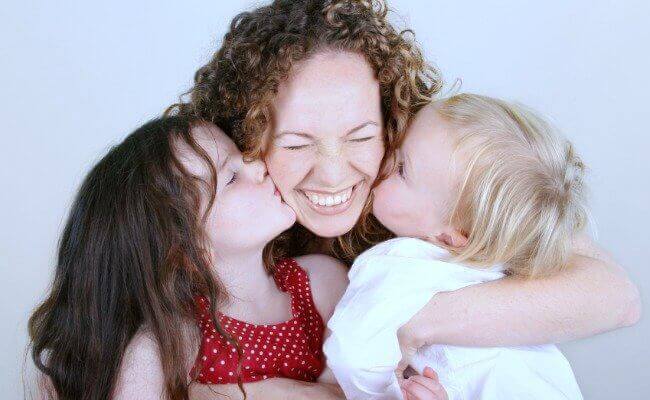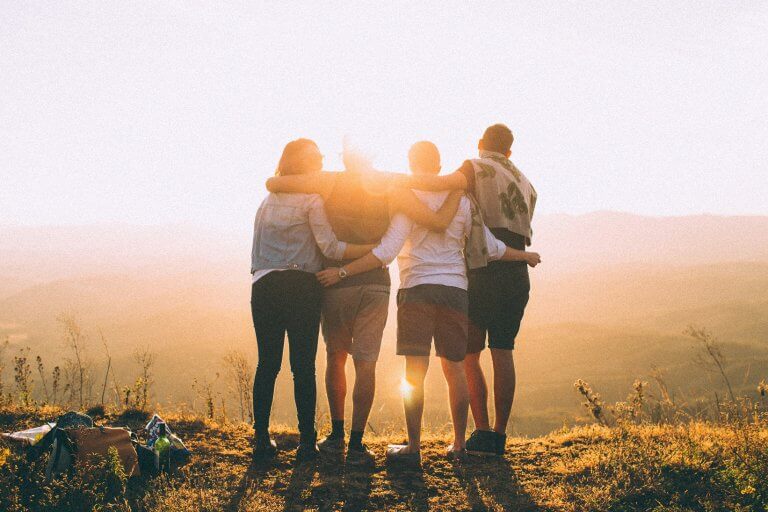Friendliness: Strong Enough to Knock Down Any Wall

It seems like friendliness is going extinct in today’s world, especially in big cities. There’s an anthropological reason for this. We’re colder with other people and tenser when we live in places with high population densities. This is one of the things that makes it harder to be psychologically and emotionally healthy in these kinds of places.
There are a lot of places where, for example, it’s weird to greet your neighbors. People see it as a waste of time, nothing but pointless flattery. Everyone minds their own business.
These are places where people don’t value friendly gestures from other people. There are also places where people are more likely to have anxiety, depression, or just a hard time going through life with a good attitude.
“In this world we’re all travelers on the same ship that has set sail from one unknown port en routeto another equally foreign to us; we should treat each other, therefore, with the friendliness due tofellow travelers.”
-Fernando Pessoa-
This even happens in some families. Seeing each other every day and being too used to each other can make these kind of gestures disappear.
But friendly gestures aren’t a luxury, they’re a way of life that leave a mark on your relationships with other people. They nourish positive emotions and protect you from negative ones.
The friendliness gene
Science has proven that we all come into the world with a built-in friendliness gene. In other words, we’re a species that needs others of our kind to survive: our biology proves it. That’s why altruism and cooperation have always been such major factors in human evolution.

Studies have shown that babies start to show friendly behavior towards other people at six months old. They choose between closing themselves off or opening themselves up to other people. They often decide to interact and be generous. Also, they’re very receptive to other people’s friendly gestures towards them.
Basically, it’s natural for us to be friendly. Unfriendliness is just a result of our civilization pushing us towards extreme individualism. It goes completely against our internal laws to look at other people as perfect strangers who have nothing to do with us.
Friendliness is a strength
Friendliness says a lot about your attitude. It shows self-control, self-confidence, empathy, seeing value in others, and awareness about your relationship as an individual to the group. It’s also a great strength to have when it comes to relationships. You’ll make it much farther with people by being friendly than by being apathetic or brusque.
Friendly people have a well-developed emotional intelligence. Friendliness is one of the most contagious attitudes. It almost always leads to more friendliness and goodwill from everyone else. It’s a great way to prevent conflicts, or to make sure they don’t get out of hand.

Friendliness can also help build character. It means knowing how to be kind and considerate of other people, without neglecting yourself. With this attitude, you can calm people down when they’re furious and console them when they’re sad. It’s no surprise that the root of the word “friendliness” comes from the Indo-European word “to love.”
The benefits of friendliness
It’s important to remember that we’re naturally social creatures who want to cooperate with each other. So the goal isn’t to try to learn to be friendly, it’s to unlearn any hostile, indifferent behaviors. You won’t regret it.
There are huge advantages to being friendly. Here are just a few:
- It protects your physical health. Friendly people have fewer conflicts with other people and the world around them. In terms of your brain, that means less cortisol (the “stress hormone”) and more oxytocin (the “happiness hormone”).
- It preserves your mental health. Friendliness towards other people stabilizes your mood and prevents states of stress and anxiety. Acts of kindness make you feel better about yourself. They make you more secure and self-confident.
- It helps you have good relationships. Friendliness pulls you out of your self-absorption and helps you connect with others. It brightens up your surroundings so they’ll be more collaborative and welcoming, and helps things flow properly.
- It’s a way to protect yourself from other people’s “bad vibes.” Friendliness also has the power to deactivate other people’s negative attitudes. It’s like a barrier–an effective response to aggression and rejection.

Before we go, there’s one big thing we need to point out. Being friendly doesn’t mean letting people walk all over you, or always “turning the other cheek.” It’s a reaffirming way of behaving and communicating where you make sure you never step on other people or act insensitively.
This text is provided for informational purposes only and does not replace consultation with a professional. If in doubt, consult your specialist.








